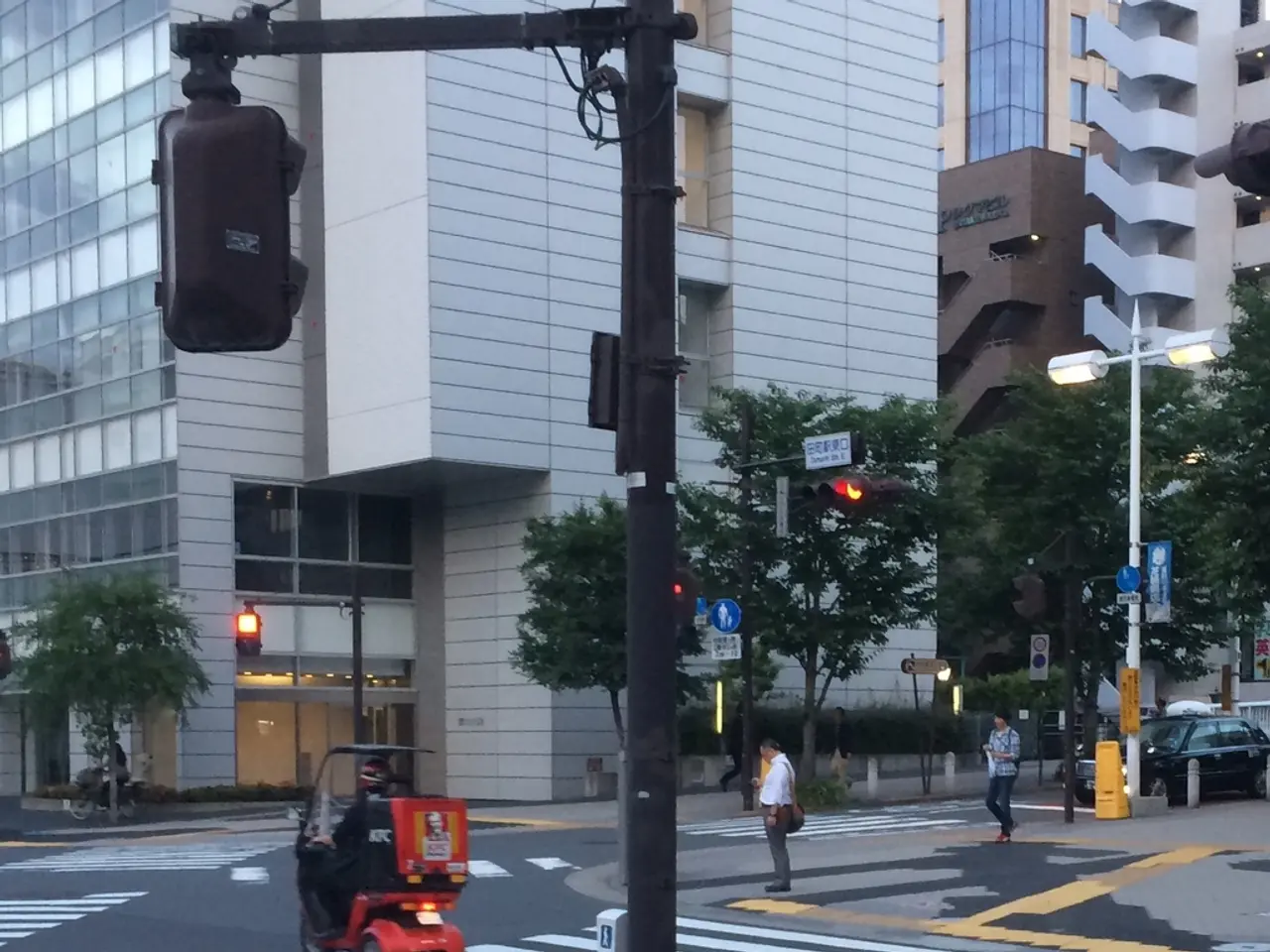NYC Proposal: Electronic Bicycles and Scooters to Remain on Park Paths and Greenways Permanently
New York City's Department of Parks and Recreation has proposed a plan to permanently allow stand-up e-scooters and e-bikes in certain park areas, extending a pilot program launched in 2023. The initiative aims to integrate the same micro mobility devices already allowed on NYC streets into parks, while continuing to ban mopeds and heavier vehicles.
The proposal, based on two years of public input gathered during the pilot, is designed to enhance safety for pedestrians, cyclists, and e-mobility users alike. It covers park drives and greenways, such as the Brooklyn Waterfront Greenway, and includes safety measures like creating physical space separations between pedestrians and faster micro mobility users, modifying traffic signals, and directing pedestrians to archways to reduce conflict points on park drives.
Officials are also considering a 15 mph speed limit for e-bikes and e-scooters, similar to the limit recently introduced on city streets, as a way to further ensure safety. The initiative forms part of broader city efforts to regulate e-bikes and e-scooters more comprehensively, including the creation of a Department of Sustainable Delivery within the Department of Transportation to oversee regulation and enforcement.
However, not everyone is in agreement. Street safety advocates, including the NYC e-vehicle Safety Alliance (EVSA), have expressed concern about the proposal. Janet Schroeder, co-founder of the EVSA, has raised issues such as riders speeding through red lights, looking down at phones, and riding on pedestrian pathways. The EVSA has demanded an end to the pilot allowing the devices in parks.
Other advocacy groups, on the other hand, consider giving e-bikes and e-scooters access to greenways and park drives a "critical step forward" in adapting to transportation trends. Ligia Guallpa, executive director of the Worker's Justice Project, thanked Commissioner Rodriguez-Rosa and NYC Parks for recognising that thoughtful design of public space can improve street safety and contribute to the city's equitable growth.
The proposal's implementation remains uncertain, as it will undergo a formal rule change process with public input. Queens City Council Member Robert Holden has sponsored Intro 0060 to prohibit e-scooters and e-bikes from operating in city parks. Meanwhile, Schroeder from the NYC e-vehicle Safety Alliance has vowed to fight the proposal until Intro 0060 is passed.
In a related matter, unicycles, currently illegal in NYC, have been found being used in parks. Schroeder has also expressed concern about the use of unicycles in parks. E-bike collisions citywide have increased by 11% year to date compared to 2024.
As the city strives to balance increased mobility options with enhanced safety for all park users, the debate on the proposed integration of e-scooters and e-bikes in parks continues. The plan, if implemented, would support NYC’s goal to make public spaces more accessible and secure for everyone.
- The proposal for permanent e-scooters and e-bikes in certain park areas, part of a broader city initiative, also encompasses the regulation of home-and-garden equipment, such as electric lawnmowers and garden tools.
- In addition to the micro mobility devices, the plan also focuses on promoting outdoor-living, with the integration of electric cars and electric vehicles in parking spaces within the park, reducing carbon emissions and encouraging environmentally-friendly transportation.
- The proposal further extends to the finance industry, as the City explores potential partnerships with green energy companies to provide charging stations for electric vehicles and outdoor equipment within the park, promoting sustainable living and renewable energy.
- Meanwhile, discussions regarding the impact of lifestyle changes on infrastructure investments are being held, considering the expansion of recreational facilities such as bike paths and pathways for other mobility devices like unicycles, to accommodate a variety of park users.




